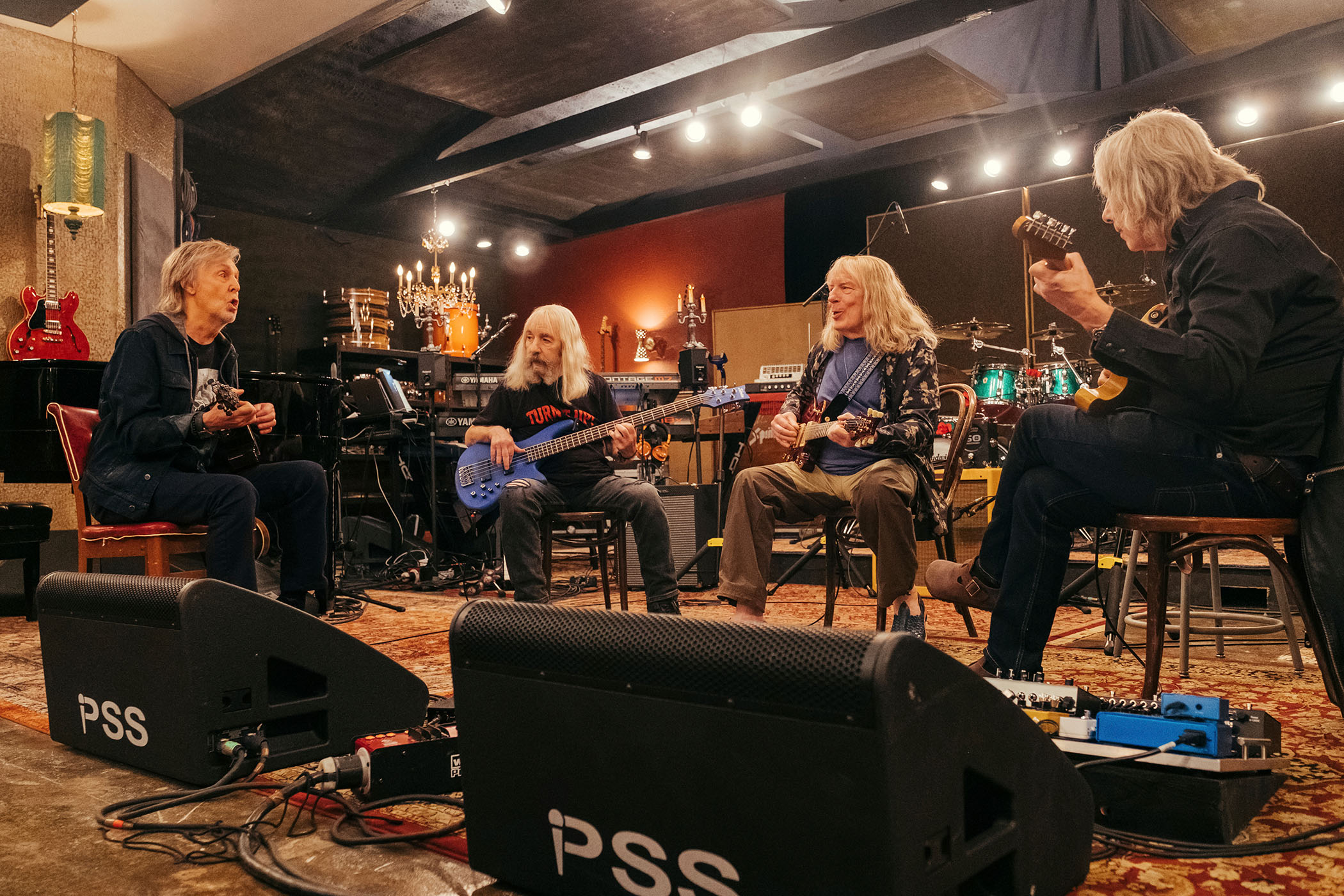It’s hard to overstate the cultural significance of the 1984 parody of a rock documentary This Is Spinal Tap. An account of an unmitigated disaster of a tour by “one of England’s loudest bands”, fictitious heavy metal outfit Spinal Tap, the film became an endlessly quoted cult classic. It introduced the phrase “up to 11” into common parlance. Credited with popularising the mockumentary genre, the picture ruthlessly yet affectionately skewered a certain type of self-serious and overinflated rock ego.
In 2002 it was listed as “culturally, historically, or aesthetically significant” by the Library of Congress and was selected for preservation by the US National Film Registry. It bestrode, in its too-tight leather trousers, most lists of funniest films compiled over the past four decades. Could a sequel ever live up to such a monumental legacy?
Unfortunately, the answer is an emphatic no. This is the first full sequel, although there have been two hour-long TV specials, A Spinal Tap Reunion: The 25th Anniversary London Sell-Out, a concert movie filmed at the Royal Albert Hall in 1992, and a 2009 extended interview, Spinal Tap: Back From the Dead. But Spinal Tap II: The End Continues is a strikingly meagre offering. The film hauls back the core band members – guitarist Nigel Tufnel (Christopher Guest), lead singer and guitarist David St Hubbins (Michael McKean) and bass player Derek Smalls (Harry Shearer) – for one last contractually obligated gig. But the greatest hits approach to the set list for this final appearance extends beyond the songs to include the gags as well.
Newsletters
Choose the newsletters you want to receive
View more
For information about how The Observer protects your data, read our Privacy Policy
And while the joke is still very firmly on these preposterous men-children with their unreconstructed views on the world in general, and women in particular, there’s now a slightly tragic aspect to the somewhat raddled former rock gods. They are out of tune with the world.
This might have been an interesting aspect for the film to explore. Spinal Tap lyrics were offensively outre even back in the 1980s. How could the band possibly survive contemporary sensibilities? But the film chooses to take them at face value rather than take them to task: Spinal Tap might be paunchy, petulant has-beens, but their lyrics and behaviour have taken them so far beyond cancellation that they have come full circle and become ironically cool again. It’s depressingly clear that the satirical edge of the first film is long gone and the laughs are thin on the ground.
The story, such as it is, explores the tensions that have torn the band apart. Nigel now lives in Berwick-upon-Tweed, where he runs a cheese-and-guitar shop. He’s in a long-term relationship with a woman he wooed with a slice of wigmore. He’s not entirely sure why, but he hasn’t spoken to his bandmates in more than a decade.
David lives in the US and is still making music, performing live with a mariachi band and composing the scores for podcasts. He’s particularly proud of a jangly piece of telephone hold music that, he notes, won a “Holdy” at an awards show dedicated to this niche area of commercial composition.
And Derek, having suckered his bandmates into an ill-advised cryptocurrency scheme, now runs a glue museum in Tooting. Reunited in a rehearsal studio in New Orleans, in advance of a one-off concert, it becomes clear that David is nursing a grudge and that Nigel’s effects-pedal habit is out of control.
Nigel now lives in Berwick-upon-Tweed, where he runs a cheese-and-guitar shop
Nigel now lives in Berwick-upon-Tweed, where he runs a cheese-and-guitar shop
The Spinal Tap mythology is already so well established and well loved that perhaps the team (Guest, McKean, Shearer and director Rob Reiner all return as screenwriters) struggled to come up with anything fresh. There’s a companion scene to the classic moment in the original movie in which Nigel talks us through his equipment, including the amplifier that goes up to 11.
In the new version, Nigel reveals a secret compartment in the back of his guitar to stash emergency cheese rations. Which is mildly amusing, I guess, but not quite in the same league as the on-the-nose savaging of rock pomposity in the original.
In the absence of new ideas, the film leans heavily on celebrity cameos. Paul McCartney wanders into the rehearsal space to take part in a DOA skit about offering notes on David’s guitar arrangements. And Elton John – inexplicably, given the disconnect between his music and that of Spinal Tap – is recruited as a guest performer for the show, with unfortunate consequences.
The weakness of the material and the familiarity of the structure are problems. But there’s also the fact that Spinal Tap II returns to a cultural landscape that is beyond parody. Viewers in search of ear-splitting volume and posturing absurdity could do worse than seek out the music documentary Metallica: Some Kind of Monster. And anyone with a taste for hilarious, poignant tales of rock’n’roll failure should watch the endearing and amusing portrait of Canadian heavy metal also-rans in Anvil!: The Story of Anvil.
Photograph by Bleecker Street via AP

